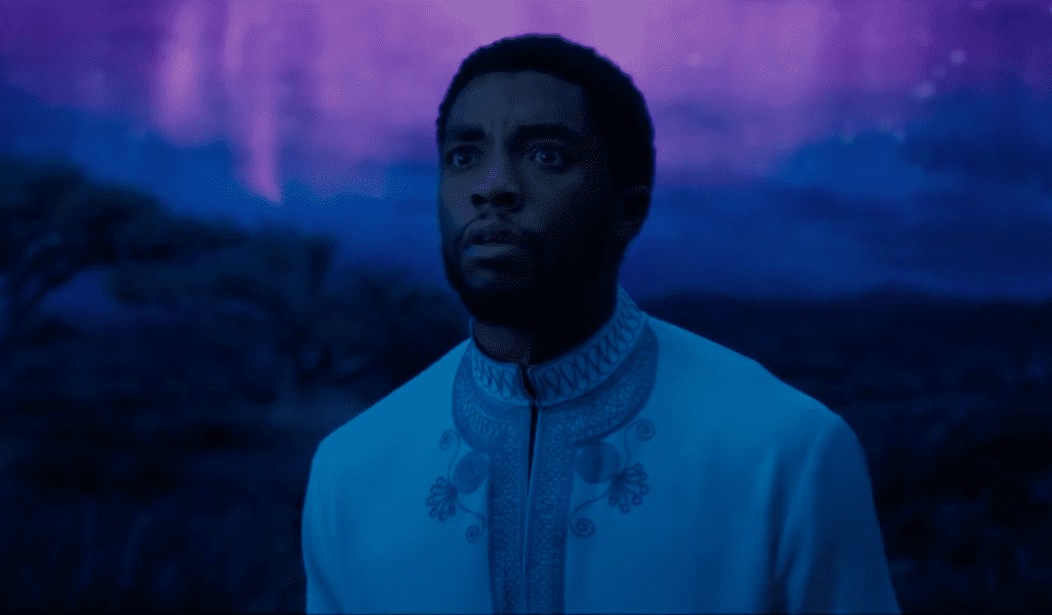“Black Panther” releases this weekend, and it is expected to take the box office by storm. For a brief moment, it had a 100 percent rating on the review website Rotten Tomatoes. Critics are raving, and audiences are excited.
Even so, the film’s political themes may prove problematic. Reviewers have written that the movie is “alt-right” (perhaps oblivious of the racial undertones of such a statement) and others have noted that it pays a homage to the political terrorist group the Black Panthers.
“If it weren’t fictional, it would be Steve Bannon’s favorite African nation without a doubt,” The Playlist’s Rodrigo Perez wrote. The titular main character T’Challa (Chadwick Boseman), who fights as the “Black Panther,” is the king of an African country called Wakanda.
Perez did not mean anything racist in suggesting that an African country is “alt-right,” a movement often associated with white nationalism. Instead, he suggested Wakanda shares the “alt-right” kind of nationalist isolationism, just with an African flare.
“Wakanda is a technological wonder, but it’s also a nation of self-regarding isolationists, built upon layers of lies and mistrust,” Perez explained. “The state hordes the precious vibranium they have told the rest of the world no longer exists, and their advancements in medicine and weaponry could revolutionize the planet.”
Wakanda does not share its blessings with the world. “Instead, they literally masquerade as a country of impoverished farmers, hiding their hi-tech cities with cloaking device force fields from the rest of the world. (Trumpists would wonder, ‘Who would think to look in this shithole?’),” the reviewer wisecracked.
“Nativists through and through (though fear of imperialist exploitation is likely an issue, but one never really addressed), Wakanda rejects refugees and refuses to help any of their fellow deprived African brothers and sisters even though they’re more than capable of providing relief and aid,” Perez noted. He suggested this fear of outsiders mimicked the alt-right’s white nationalism, which regards foreigners as a threat.
“Wakanda is practically Alt-Right Africa in its apathy, lack of empathy, and righteous self-interest,” the reviewer declared.
Even so, the film is not necessarily a MAGA-fest. “‘Black Panther’ is a bit more explicit in its Trump-subtweeting denouement, and it wrestles with many of the same concepts that have made the ‘Captain America’ movies so great in recent years: what are we fighting for, for whom, and in all this bluster, are we actually on the right side of the war?”
Fascinatingly, Perez wrote that the new movie “plays with similar ideas of pulling back the curtain to reveal that the truths you’ve been told and the things you defend may not be as honorable as you once thought they were.”
With any luck, this should extend to the brief scene devoted to the Revolutionary Black Panther Party, a far-Left black nationalist socialist group founded in 1992 that claims continuity with the Black Panther Party of the 1960s. The FBI has categorized the original group as militantly subversive for attempting to overthrow the U.S. government by force of arms.
The Revolutionary Black Panther Party is not the only group claiming the original party’s mantle. Even the far-Left Southern Poverty Law Center has branded the so-called New Black Panther Party a racialist “hate group.”
Empire Online’s Jimi Famurewa noted that early in “Black Panther,” the movie jumps “to Oakland, California, in 1992 — the birthplace of … the actual Black Panther Party.”
Despite this homage to the Black Panthers, the movie seems rather politically reactionary. The hero T’Challa is a hereditary monarch, taking the throne of his father. While he may end up opening Wakanda up to foreigners, it seems more reasonable to call this hero conservative to some degree, however many references to the Revolutionary Black Panthers emerge throughout the film.
Perhaps Perez was more right than he suspected. Even if the movie rejects Wakanda’s “alt-right” isolationism, it seems to embrace hereditary monarchy — something even more conservative than the alt-right.









Join the conversation as a VIP Member